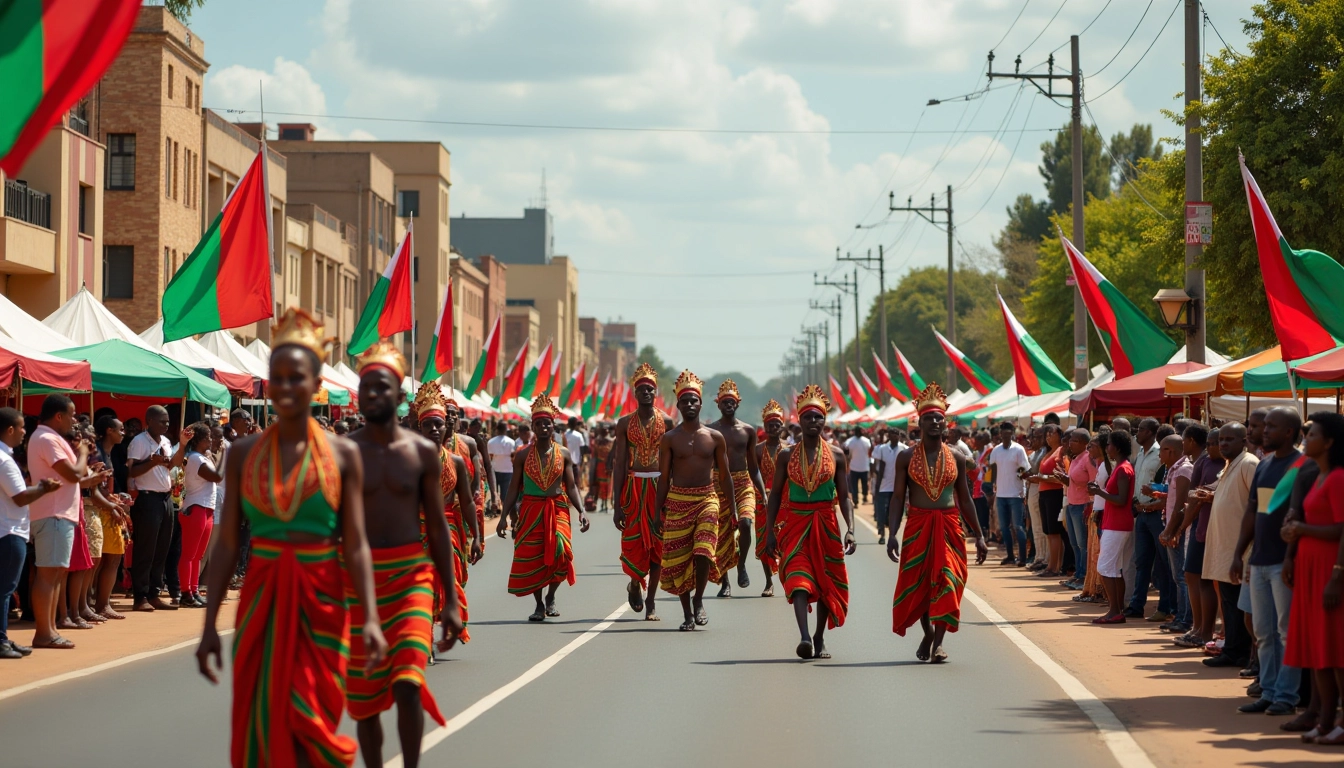
August 5 marks not only International Beer Day, but also a historic milestone for Burkina Faso — the date of the country’s accession to national sovereignty as the former Upper Volta.
While the world celebrates hops and history, the day unfolds against a backdrop of major political shifts, economic measures, and regional tension across West Africa.
On the geopolitical front, August 4 was defined by continued hostilities between Russia and Ukraine, instability in the Middle East, and mounting pressure over climate and migration worldwide.
Within the ECOWAS bloc, Ghana made headlines by raising the producer price of cocoa by 62.58%, bringing it to $5,040 per tonne—an effort to support farmers and reflect 70% of the gross export price.
Meanwhile in Nigeria, human rights lawyer Femi Falana condemned President Bola Tinubu’s economic policies, branding them “harsh neoliberal reforms” that have dismantled the middle class and worsened public hardship.
In Guinea, junta leader General Mamadi Doumbouya called for a national referendum on a new constitution to be held on September 21—a key step in the country’s return to civilian rule following the 2021 coup.
Over in Togo, civil society plans to defy previous bans and stage a peaceful march on August 9 in Lomé, demanding justice for victims of June’s unrest.
Burkina Faso’s security architecture is seeing new leadership with the appointment of Thierry Dofizouho Tuina as the 27th Director General of the National Police.
He has pledged innovation and renewed efforts to restore peace. Across the AES alliance, Mali faces legal challenges over the dissolution of political parties, with two courts set to review the issue in early July 2025.
Niger continues to enhance its energy independence through the SORAZ refinery, which remains operational despite international sanctions.
The country is also constructing a $2.3 million PET scan unit in Niamey to boost medical diagnostics and healthcare access.
Across the continent, Rwanda and the Democratic Republic of Congo have signed a landmark economic integration agreement targeting joint development in energy, minerals, and infrastructure.
In Central Africa, Chad and Nigeria have stepped up joint efforts to manage cross-border threats through enhanced cooperation with local actors.
In Cameroon, 70.2 billion CFA francs will be invested into the CICAM textile industry by 2030, aiming to raise cotton output to 600,000 tonnes and curb dependence on Asian imports. Meanwhile in Egypt, 68 million voters are casting their ballots over two days to elect 200 senators in a pivotal political exercise.
Globally, Africa is rallying behind calls for a binding international agreement on plastic pollution, despite resistance from nations like Saudi Arabia. Meanwhile, Pope Leo XIV has urged African churches to promote unity and peace during a speech at SECAM in Kigali.
In Europe, the EU Court of Justice overturned Italy’s controversial asylum agreement with Albania, ruling the classification of “safe countries” flawed.
This decision complicates Prime Minister Giorgia Meloni’s migration agenda ahead of new EU regulations in 2026.
In the U.S., Vice President Kamala Harris made her first public comments since her electoral defeat, releasing a book but staying silent on a 2028 bid.
Donald Trump reignited trade tensions by threatening steep tariffs on India over its reselling of Russian oil.
Elsewhere, Israel is allowing private goods into Gaza amid ongoing aid efforts. Japan shattered temperature records at 41.6°C in Isesaki, as June and July 2025 go down as the country’s hottest months. The Japanese government announced plans to boost rice production by 2027 amid tourism-driven shortages.
As Burkina Faso reflects on its journey since independence, the broader region continues to confront old challenges and embrace new beginnings.



